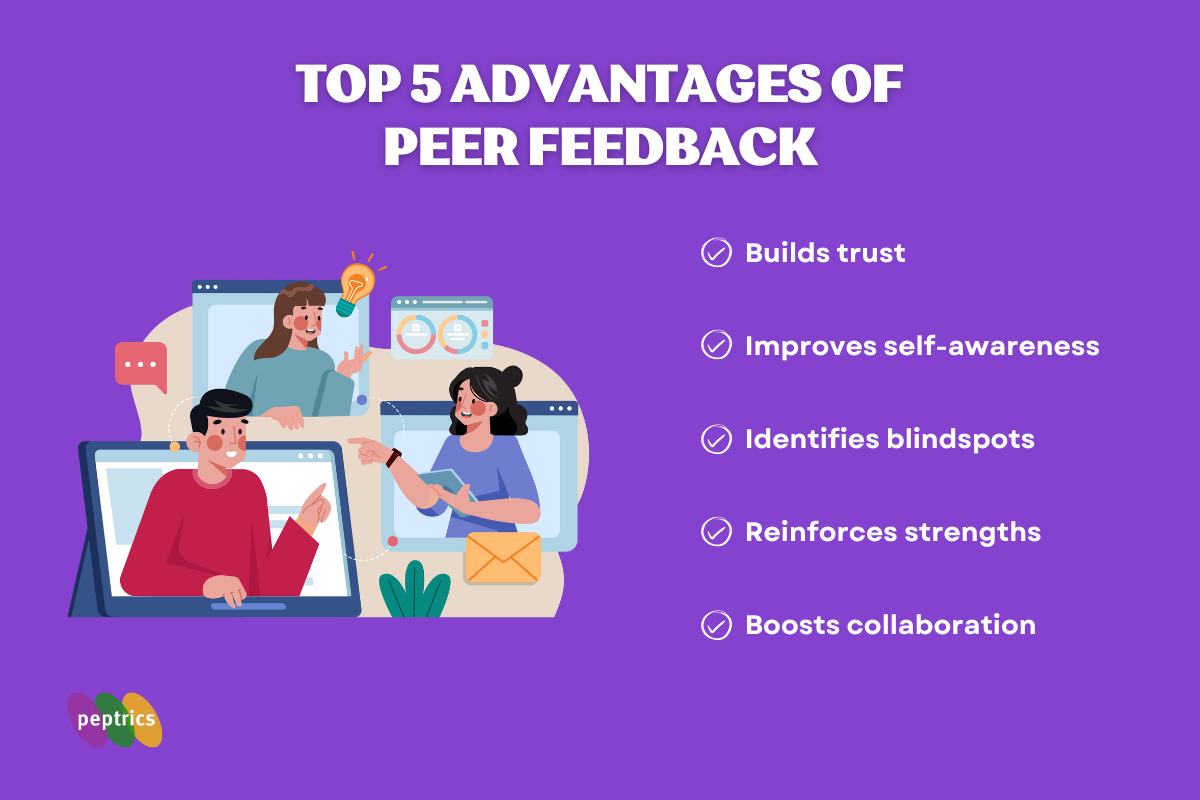Why Peer Feedback Should Be a Core Team Practice
Did you know that 80% of employees who receive regular feedback are fully engaged at work? That’s according to a recent Gallup study. Another report says that only 33% of U.S. employees are engaged in their work, representing $1.9 trillion in lost productivity in the U.S alone - a startling statistic that no leader can afford to ignore.
As a leader, you have a unique opportunity to unlock your team’s potential through peer feedback. By encouraging your employees to give each other regular, constructive feedback, you facilitate an environment of growth and collaboration. Employees who know their strengths and weaknesses are more motivated to improve. They also build trust and empathy for their colleagues. If done right, peer feedback can be even more valuable than manager feedback!
The key is providing a framework for giving meaningful feedback focused on goals and development areas, not personal criticisms. In addition to scheduling regular check-in meetings with their team members, leaders should also equip them with the skills to deliver peer feedback effectively. The results will speak for themselves. You’ll see improved performance, communication and job satisfaction. Unlocking your team’s potential begins with the simple but powerful act of peer feedback.
Here are top 5 advantages of peer feedback to make the case for formalizing the practice in your team:

- It builds trust: Giving thoughtful feedback shows you care about your teammates’ development. Receiving it well shows you are open to growth.
- It improves self-awareness: Peer feedback could often reveal strengths and weaknesses you may have overlooked. This self-awareness makes you a better team member.
- It identifies blindspots: Your peers have a unique vantage point to see skills you need to build which your manager may not notice.
- It reinforces strengths: Your peers could see strengths that aren’t visible to your manager. Reinforcing strengths is just as important as addressing weaknesses!
- It boosts collaboration: Peer feedback fosters empathy, as people better understand the challenges their teammates face. You learn how to overcome silos and work together better.
Getting started with peer feedback doesn’t have to be complicated. Dive in with our free, no-frills solution to start unlocking the powerful benefits right away.
